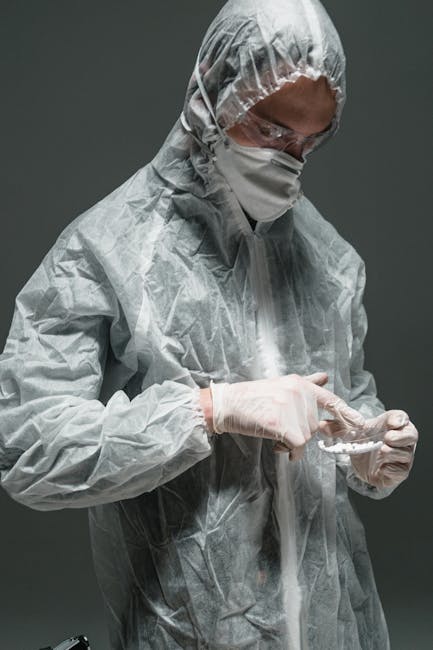Prague, the capital city of the Czech Republic, is known for its rich history, cultural landmarks, and vibrant nightlife․ However, beneath its charming surface, the city has been grappling with a growing problem of cocaine trafficking and consumption․ Recent reports have highlighted the significant role of Dominican cocaine in Prague’s illicit drug trade․
Origins of Dominican Cocaine
Dominican cocaine originates from the Dominican Republic, a Caribbean island nation․ The country’s strategic location, with its extensive coastlines and proximity to major shipping routes, makes it an attractive hub for drug traffickers․ Cocaine is typically smuggled into the Dominican Republic from South America, where it is produced, and then transported to Europe, including the Czech Republic․
Prague’s Cocaine Market
Prague’s cocaine market is characterized by a high demand, driven by the city’s thriving nightlife and tourism industries․ The drug is often sold in nightclubs, bars, and other entertainment venues, where it is consumed by both locals and visitors․ The ease of access to cocaine in Prague has contributed to a growing number of users, including young people and professionals․
Consequences and Challenges
The proliferation of Dominican cocaine in Prague has severe consequences, including increased crime rates, health problems, and social issues․ The city’s authorities face significant challenges in combating the illicit drug trade, including limited resources, corruption, and the complexity of international drug trafficking networks․
- Law enforcement efforts to disrupt cocaine supply chains and arrest traffickers
- Public health initiatives to reduce drug consumption and provide support to users
- International cooperation to combat transnational organized crime
To effectively address the issue of Dominican cocaine in Prague, a comprehensive approach is necessary, involving government agencies, law enforcement, healthcare providers, and community organizations․ By working together, it is possible to reduce the availability and demand for cocaine, and promote a safer, healthier environment for the city’s residents and visitors․
International Cooperation and Law Enforcement Efforts
The Czech Republic has been working closely with international partners, including the Dominican Republic, to combat the flow of cocaine into Prague․ Law enforcement agencies, such as the Czech National Anti-Drug Unit and the Dominican Republic’s National Directorate for Drug Control, have been sharing intelligence and coordinating efforts to disrupt trafficking networks․
Challenges in Disrupting Trafficking Networks
Despite these efforts, disrupting cocaine trafficking networks remains a complex challenge․ Traffickers often use sophisticated methods, including encrypted communication and money laundering schemes, to evade detection․ Additionally, the sheer volume of air and sea traffic between the Dominican Republic and Europe makes it difficult to intercept all cocaine shipments․
Furthermore, corruption and organized crime pose significant threats to law enforcement efforts․ In some cases, corrupt officials and law enforcement officers have been implicated in cocaine trafficking, undermining efforts to combat the trade․
Impact on Local Communities
The presence of Dominican cocaine in Prague has also had a significant impact on local communities․ Many neighborhoods have seen an increase in crime, including burglaries, robberies, and violent incidents, as a result of the drug trade․ Residents have expressed concerns about the safety and security of their communities, and many are calling for increased police presence and community-led initiatives to address the issue․
The city’s authorities need to take a more proactive approach to addressing the root causes of the problem, including poverty, lack of opportunities, and social exclusion․ By providing support to vulnerable communities and promoting economic development, we can reduce the allure of the drug trade and create safer, more resilient neighborhoods․
Community-Led Initiatives
In response to the growing concerns about the impact of Dominican cocaine on local communities, several community-led initiatives have emerged in Prague․ These initiatives aim to provide support to individuals and families affected by the drug trade, as well as to promote awareness and education about the risks of cocaine use․
Prevention and Education Programs
One of the key areas of focus for community-led initiatives is prevention and education․ Many organizations are working to develop and implement programs that educate young people about the dangers of cocaine use and the risks associated with the drug trade․ These programs often involve workshops, counseling sessions, and other activities designed to engage young people and provide them with the skills and knowledge they need to make informed choices․
For example, the Prague Drug Prevention Center offers a range of programs and services aimed at reducing drug use and promoting healthy lifestyles among young people; The center provides counseling, mentoring, and education programs, as well as recreational activities and support groups․
Support Services for Users and Families
In addition to prevention and education programs, community-led initiatives are also providing support services for individuals and families affected by cocaine use․ These services may include counseling, therapy, and other forms of support designed to help users overcome their addiction and rebuild their lives․
The Czech Drug Help Line is a confidential service that provides support and guidance to individuals struggling with drug addiction․ The helpline is staffed by trained counselors and provides a safe and non-judgmental space for users to discuss their problems and receive support․
Collaboration and Partnership
Community-led initiatives are also recognizing the importance of collaboration and partnership in addressing the issue of Dominican cocaine in Prague․ Many organizations are working together to share resources, expertise, and knowledge, and to develop comprehensive and effective responses to the problem․
For example, the Prague City Council has established a Drug Coordination Committee that brings together representatives from local government, law enforcement, healthcare, and community organizations to coordinate efforts and develop strategies for addressing the drug trade․
A Way Forward
Addressing the issue of Dominican cocaine in Prague will require a sustained and collective effort from government agencies, law enforcement, community organizations, and individuals․ By working together and supporting community-led initiatives, it is possible to reduce the availability and demand for cocaine, and to promote a safer, healthier environment for the city’s residents and visitors․







It\
The article highlights a very serious issue that needs to be addressed. I hope the authorities take note of the suggestions provided to combat the illicit drug trade.
As someone who has visited Prague before, I had no idea about the extent of the cocaine problem. This article has definitely opened my eyes to the reality of the situation.
The article raises important questions about the role of law enforcement and international cooperation in combating transnational organized crime. I hope to see more efforts in this direction.
I found this article to be very informative and insightful into the issue of Dominican cocaine in Prague. It\
I appreciate how the article provides a comprehensive overview of the origins of Dominican cocaine and its impact on Prague\
The article provides a thorough analysis of the consequences of Dominican cocaine in Prague, including increased crime rates and health problems. I hope that policymakers take action to address this issue soon.
I agree that a comprehensive approach is necessary to address the issue of Dominican cocaine in Prague. It will require collaboration from government agencies, law enforcement, healthcare providers, and community organizations.